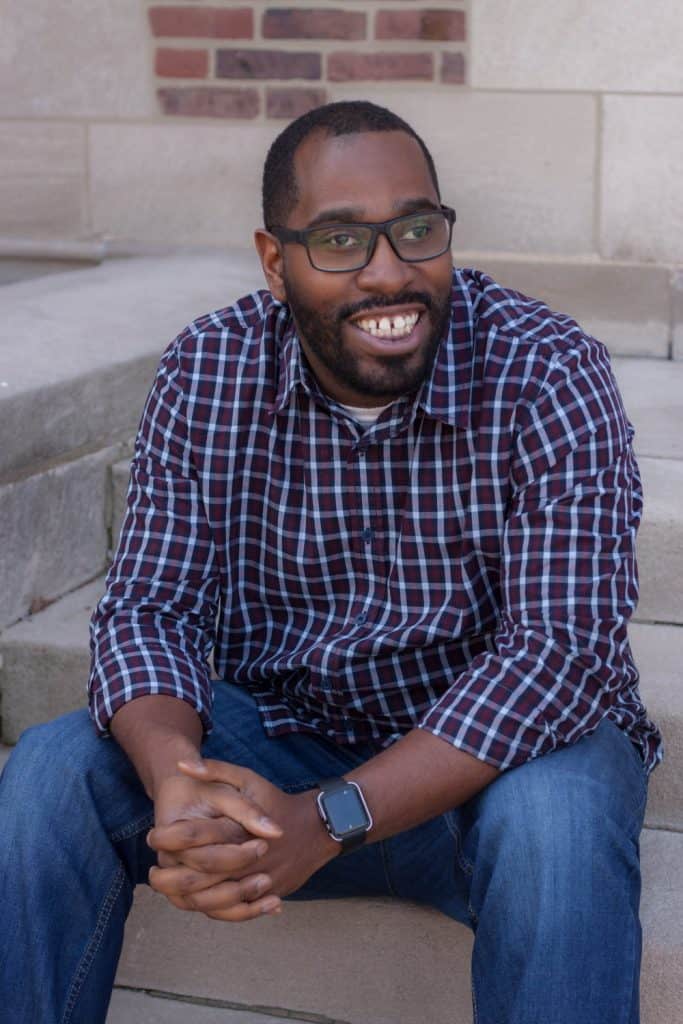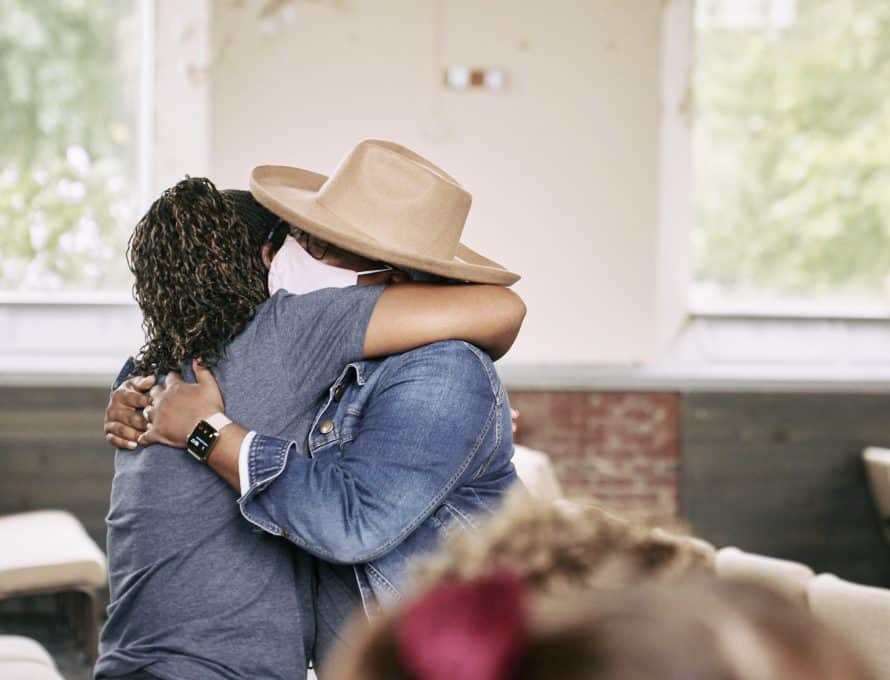EDITOR’S NOTE: The Annie Armstrong Easter Offering provides half of the North American Mission Board’s annual budget, and 100 percent of the proceeds go to resource missionaries. The offering’s theme this year is “United,” based on Romans 15:5-6. The 2022 Week of Prayer for North American Missions is March 6-13.
ST. LOUIS (BP) – Michael Byrd went back to his old neighborhood to plant a church knowing ministry there would be challenging.
So, when he met and befriended an unmarried couple who did not know Jesus, Byrd saw a Gospel opportunity.
“They had been shacking up before marriage and had kids,” said Michael, who serves as planter and lead pastor of Faith Community Bible Church in North St. Louis. “But through relationships, caring for them, shepherding them and showing them something that was ‘not that life,’ they knew they wanted something different.”

Michael Byrd
So, they asked Michael if he would perform their wedding.
He said yes, and they started eight sessions of premarital counseling, which Michael describes as “basically eight times of me sharing the Gospel.”
Now, they are a happily married, Jesus-following couple who were baptized at their church.
“They’ve been married for a few years now, they’re faithful members of the church, and they love the Gospel,” he said.
That’s what life-change looks like in the neighborhood where he and his wife, Traci, serve as missionaries – it’s a little messy, and it takes place in the context of relationships outside the walls of the church.
At first, the Byrds swore they would never move back to their native, inner-city St. Louis.
“It was just a bad neighborhood, and we didn’t want to raise our kids there,” Michael said. “The schools were terrible. Our kids couldn’t go out and play without us being nervous.”
So, they left, planning never to come back. And they were both shocked when seven years later God called them right back into that neighborhood to plant Faith Community Bible Church.
“After being missional in the inner city for several years and partnering with other churches to reach the lost in the city, God gave me a burden to see inner-city churches planted in areas that many turn their backs on,” Michael said.
And the area Michael picked first – North St. Louis, the area he himself had turned his back on – is a very impoverished neighborhood that is about 95 percent African American. The crime rate is high, drug use is rampant and most homes only have one parent.
“They are people who feel abandoned, uncared for – people who feel like they’ve got to rob Peter to pay Paul,” Michael said. “The heart of Faith Community Bible Church is to make Jesus known by caring for them.”
The church has fleshed that out in a number of ways.
First, rather than assuming they knew the needs of the community, the planting team went out and asked them what they would want a new church in the area to look like.
“And what we heard was, ‘Hey, a new church, this community don’t need a new church. It’s churches everywhere,’” Byrd said, noting that asking the question was a ploy to hear their hearts. “We quickly found out that the community we were in didn’t trust the church because the church always came with their hand out – ‘give, give, give’ – instead of coming with hands-on ‘serve, serve, serve.’”
The team put what they learned into practice, building a care-based strategy centered on the community’s expressed needs. They even halted plans for a food pantry.
“The community was like, ‘Wait a minute, we don’t need a food pantry. We get food stamps. What we do need, though, is to learn how to cook more than just fried chicken and french fries,’” Michael said.
So, Traci started gathering women in the Byrds’ home to teach them how to take a pack of chicken and make it stretch by making meals like chicken pasta and chicken pot pie. She was able to build valuable relationships.
And Michael began to organize block parties with free barbecue, rappers and activities for the kids. These kinds of events drew the neighbors.
The whole mission of the church was “when we saw areas that we could serve in the community, we would serve,” Michael said.
That meant plugging into people’s lives and discipling them over meals, during trips to the grocery store and any other time they could connect.
“People have to work, so we get in where we fit in,” he said. “We spend life together.”
The church was officially planted in 2016 but expanded to include another campus in a similar neighborhood in 2020. Michael said they’re continuing to see God change lives in both places. And recently the church took 15 or 16 people who “probably had never left St. Louis before” on their first mission trip to serve a church in Kentucky.
Michael says his inner-city neighborhood may be rough, but the root problem – sin – is the same as anywhere else, and the remedy – Jesus – is the same too.
“They’re people who need the Gospel,” Michael said. “And we want to get it to them and help them live on mission.”

